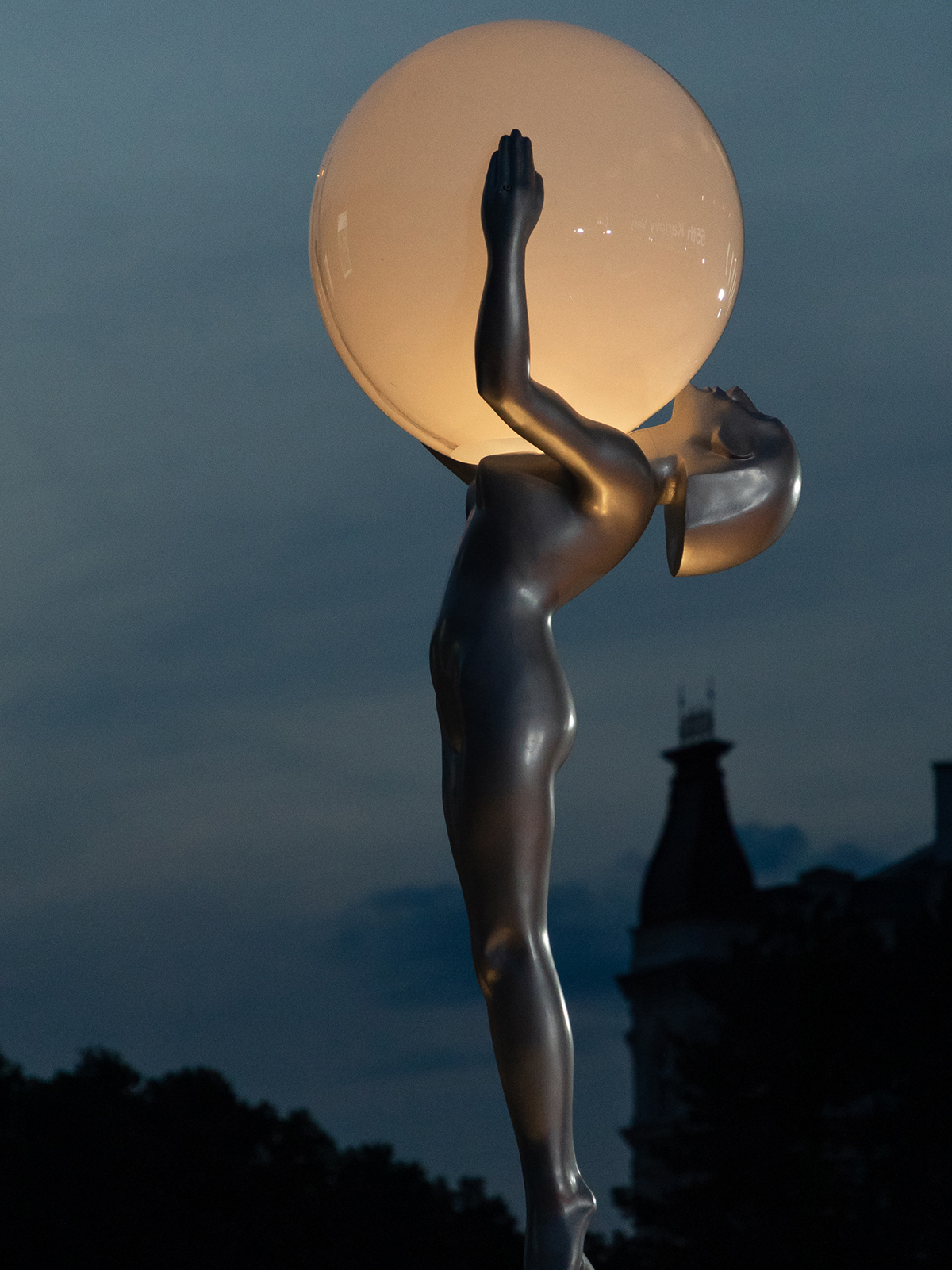
- Film
Karlovy Vary, A True International Film Festival
It lasted eight days and was really intense. Almost 10,000 visitors descended into the small and beautiful health resort located two hours away from Prague to watch over 140 films, including 29 features that had their world premiere there. If a word can describe the feeling of Karlovy Vary International Film Festival during these days it would be festive, as if the whole town was celebrating nonstop. The screening rooms and local theaters that participated worked from early morning to after midnight, and parks and sidewalks had activities that celebrated cinema. At night, the city offered concerts and firework displays.
This year marked the return of the beloved event after a year off caused by the pandemic. The celebratory feeling was there from the beginning, on the opening night, with a show in the Great Hall of the Thermal Hotel. The event used the logo of the 55th edition to create a grand spectacle on stage, with practical visual effects and a dance number to the tune of the 1969 song Popcorn by Gershon Kinsley.
A few speeches later, Michael Caine walked in and was received by a standing ovation. He may have had difficulties walking, but his voice and his humor were the same as always, explaining to the audience that he was just a very lucky man. “I started my career as a nobody from nowhere who knew nothing. You’ve given me an award for something I love doing,” he said. A screening of Zátopek, directed by David Ondříček was next, followed by a huge party inside the hotel and, outside, fir the crowd, a local version of Jesus Christ Superstar.
The days to come were devoted to films, some of them with filmmakers introducing them. It was a vast selection that included the ones competing for the Crystal Globe, the traditional award of Karlovy Vary, plus many more that premiered in 2021 in Cannes and Berlin, including Paul Verhoeven‘s Benedetta, Jonas Carpinano’s A Chiara, Radu Jude’s Bad Luck Banging or Loony Porn, Apichatpong Weerasethakul’s Memoria or Celine Sciamma’s Petite Maman.
Even if the visits from Hollywood stars such as Caine, Johnny Depp, and Ethan Hawke were the most publicized events of the festival, what really distinguished it was the equality between the different cinemas of the world. Very few American or British films were exhibited, almost none participated in the official competition and most of them were scheduled along with the presence of their famous protagonists, such as Minamata, Depp’s still unreleased film in the US.
There were exceptions, like The Green Knight or The Nest but it was much easier to find films from Georgia, Brazil, or Serbia in the huge programming calendar than traditional American fare. Even Pleasure, which had its premiere this year in Sundance and is Ninja Thylberg‘s debut, is a Swedish production.
Latin America had a strong presence, with two films that starred Paris-based Argentine actor Nahuel Pérez Biscayart, the supernatural mystery The Intruder from his home country, and The Employer and the Employee from Uruguay. Prayers for the Stolen by Mexican Tatiana Huezo, winner of a Special Award at Un Certain Regard in Cannes, was also in the program, as was The Phantom of the Convent, a Mexican film from 1934 that was part of a large showcase of restored films brought to Karlovy Vary by the Martin Scorsese‘s Film Foundation, supported by the HFPA.
The diverse selection was reflected in the winners of this year’s competition. As Far as I Can Walk, directed by Serbian Stefan Arsenijević, took home the Crystal Globe for Best Picture, a drama about a couple of immigrants from Ghana trying to achieve their dreams in Belgrade. Ibrahim Koma won Best Actor for the film and cinematographer Jelena Stanković received a Special Mention from the Jury The film also took two more trophies, the Ecumenical Jury Award, and Europa Cinemas Label Award. The Special Jury Prize was for Czech Republic’s Every Single Minute by Erika Hníková while Dietrich Brüggemann from Germany was selected as Best Director for Nö. Éléonore Loiselle won Best Actress for the French-Canadian film Wars and the prestigious Audience Award went to Zátopek, the story of Olympic long-distance runner Emil Zátopek, the most famous Czechoslovak athlete of all time.